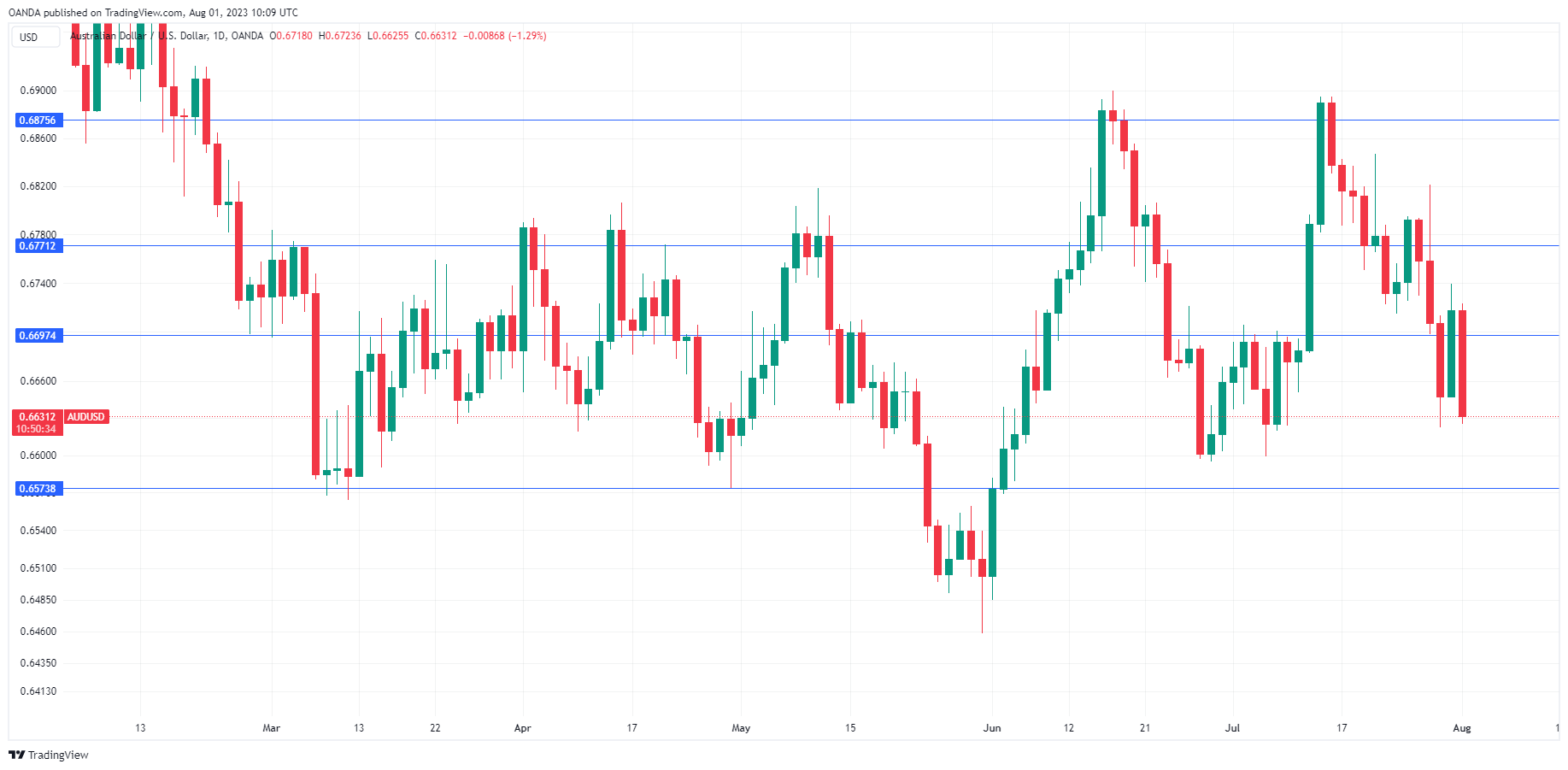- RBA pauses rates
- Australian dollar slides 1.3%
- ISM Manufacturing PMI expected to remain in negative territory
The Australian dollar continues to swing wildly this week. In Tuesday’s European session, AUD/USD is trading at 0.6630, down 1.30%. On Monday, AUD/USD jumped 1% higher.
RBA pauses rates, as expected
There were no surprises from the Reserve Bank of Australia, which paused for a second straight month and maintained the cast rate at 4.10%. The money markets had priced in a pause but the Australian dollar still took a nosedive after the decision, as the money markets have lowered the probability of a rate hike in September to below 20%.
Recent key data showed that the Australian economy has cooled off, with inflation easing in the second quarter and retail sales for June falling by 0.8%. These numbers provided support for the RBA to take a pause at today’s meeting. Still, the argument can be made that with inflation at 6%, double the upper band of the RBA’s target range, there is room for further rate hikes. The RBA did not change its inflation outlook, predicting that inflation would not return to the 2%-3% target range before late 2025. Services inflation, which includes rising rent prices, remains sticky and this is a key concern for the central bank.
Governor Lowe’s rate statement said that future rate decisions “will depend upon the data and the evolving assessment of risks.” This is a reminder that inflation and employment reports will play a key role in determining the RBA’s rate path. There is speculation that the RBA is done with tightening, but with inflation still at high levels, Lowe’s message to the markets was that further hikes remain on the table.
In the US, today’s key event is ISM Manufacturing PMI. The manufacturing sector remains in the doldrums and has been in decline since October, with readings below the 50.0 level. In June, the Manufacturing PMI slipped to 46.0, the lowest level since May 2020. Another decline is expected for July, with a consensus estimate of 46.8 points.

AUD/USD Technical
- AUD/USD has pushed below support at 0.6697. Below, there is resistance at 0.6573
- There is resistance at 0.6771 and 0.6875
